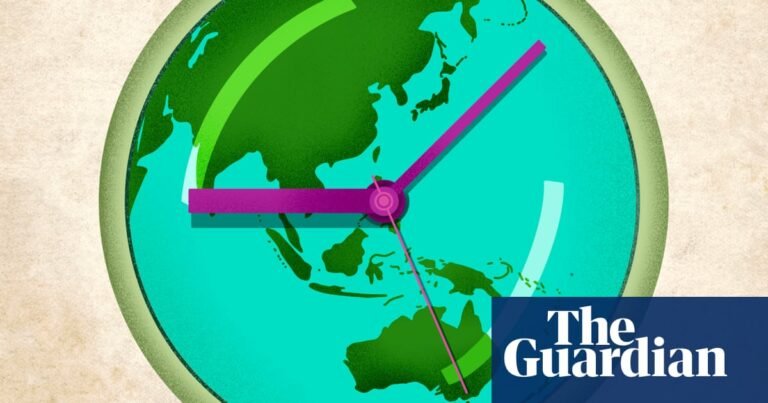Time flies, and three days in July and August could flit by faster than usual this year – but only if your clocks are set to astronomical time.
A standard Earth day is 86,400 seconds. But on 9 July, 22 July and 5 August, scientists expect the planet’s rotation to quicken relative to the sun, truncating the days by a millisecond or more.
In this period of great acceleration, is time itself now speeding up? And will global timekeepers have to skip a second to keep things tidy?
Who keeps time, and how?
Before the 1950s, the length of a day was defined by the Earth’s rotation and the apparent position of the sun.
“The Earth rotates once per day, you divide that by 86,400, that’s one second,” says Dr Michael Wouters, time and frequency lead at the National Measurement Institute – Australia’s legal time keeper and the ultimate referee for what constitutes a second.
“We’ve always needed to do certain things at certain times, with varying levels of accuracy, like knowing when to plant your crops,” he says. “As society got more and more complicated, it became necessary to know time more accurately.”
These days, the institute keeps track of time using atomic clocks, capable of measuring in nanoseconds (a billionth of a second), which are synchronised globally to Coordinated Universal Time (UTC).
“We have atomic clocks here at our Lindfield lab. One of those is the source of time, and then we have others that we just use for checking that one’s working correctly,” Wouters says.
These precise measurements matter when it comes to technology, according to Dr David Gozzard, an experimental physicist who specialises in technologies for precisely keeping and synchronising time at the University of Western Australia.
Computers, servers, GPS systems, banking and electricity networks, as well as large telescopes, all rely on incredibly accurate synchronisation, sometimes within a fraction of a billionth of a second, he says. “We’re transmitting data so quickly, and it all needs to be time tagged, so computers know what data goes where.”
Does the length of each day vary?
Unlike an atomic clock, the rotation of the Earth can be irregular. One day can be a millisecond, or a fraction of a millisecond, shorter or longer than average.
Gozzard says one of the contributing factors is the “gravitational dance” between the Earth and moon. Sometimes the moon acts like a handbrake, creating ocean tides, which bulge towards it and slightly slow the spin of the Earth. When the moon is furthest from the equator, the effect is weakened.
Oleg Titov, a Geoscience Australia scientist, says acceleration and deceleration follow seasonal trends. The shortest day every year is around July and August, which is followed by deceleration over November to March.
Scientists have noticed a slight quickening in the Earth’s spin since 2020. The fastest day recorded so far, on 5 July 2024, was 1.66 milliseconds shorter than average.
“There is a general consensus the Earth will slow down again (deceleration will win), but there is a risk that acceleration may be effective for a few decades,” Titov says.
Do we need to add or subtract ‘leap seconds’?
As the milliseconds accumulate, the system of time based on the Earth’s rotation (known as Universal Time 1) drifts further away from the official system of coordinated universal time (UTC), measured by highly precise atomic clocks.
To minimise the gap, global timekeepers began inserting something called “leap seconds”, adding an extra second here and there when needed. The first was added in 1972, the most recent in 2016.
“Atomic clocks and our computer networks are the new, far superior form of time measurement, but we’re forcing them to keep in sync with this older form of measurement,” Gozzard says. He is pleased the international community has agreed to stop adding leap seconds from 2035.
London celebrates the New Year. Photograph: Dan Kitwood/Getty Images
But if the speed-up continues, the situation might require a different and unprecedented kind of adjustment. Instead of adding a leap second, timekeepers might have to subtract one.
Deleting a leap second could cause problems, Wouters says, as skipping a second has never been tested in practice.
A few milliseconds here or there won’t make much of a difference to most people, Gozzard says. Especially given that we add or subtract an hour “arbitrarily” with daylight savings and apply the same time zones across hundreds of kilometres.
Wouters says a millisecond’s difference would be imperceptible to the human eye and brain. Even if several seconds in difference accumulated over a century, “nobody’s really going to notice”.
